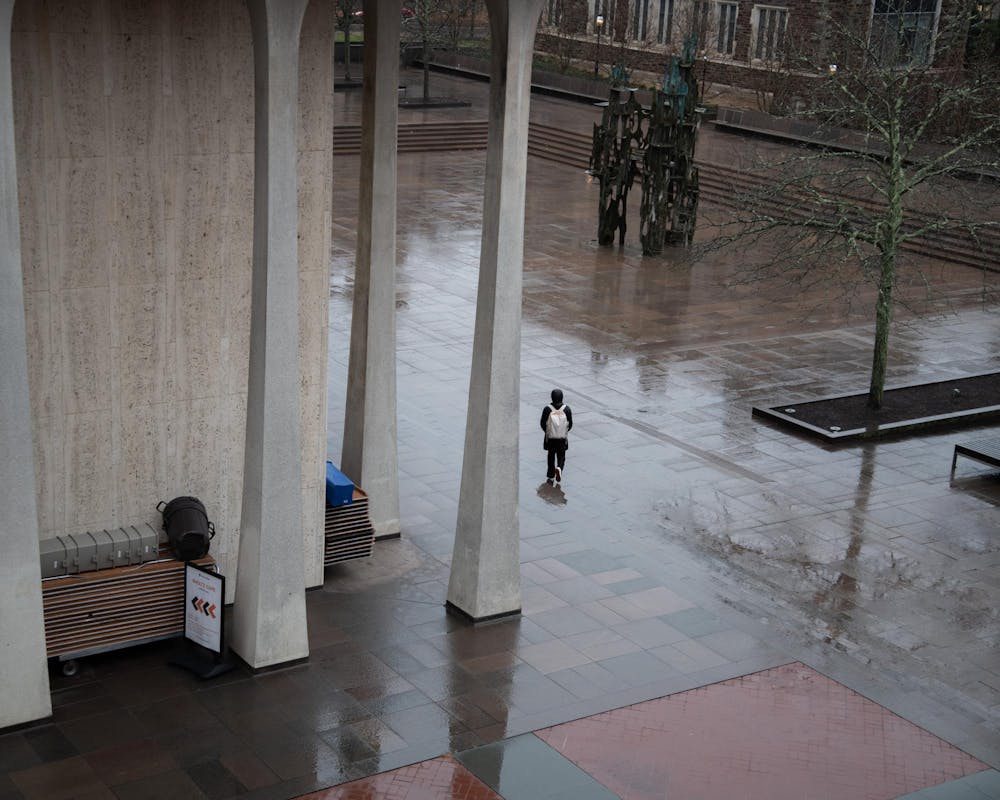Despite the initial shift in November from the “Making an Exoneree” course partnership with Georgetown University to a more locally focused course, the School of Public and International Affairs (SPIA) is now offering both SPI 494: Making an Exoneree alongside SPI 413: The Criminal Legal System: Advocacy and Freedom — the latter being the former’s presumed replacement.
Both Making an Exoneree and The Criminal Legal System focus on working toward the freedom of a person who is wrongfully convicted. While Making an Exoneree tasks undergraduates with creating documentaries to advocate for the release of the incarcerated individual, The Criminal Legal System has an emphasis on legal casework.
The cases covered in this year’s iteration of Making an Exoneree will now be local to the New Jersey, New York City, and Philadelphia region, SPIA Associate Dean Paul Lipton told The Daily Princetonian. In previous iterations of the course, Princeton students worked on the cases of incarcerated individuals from across the country. This year’s version also includes “increased content on the criminal legal system” and “support from a professional filmmaker for the documentary projects.” An expert on trauma-informed interviewing will speak with students enrolled in Making an Exoneree and The Criminal Legal System, as well as SPI 356: Asylum: Policy, Politics, and Practice.
SPIA has not yet announced who will teach Making an Exoneree, but has confirmed that Lecturer and Clinical Law Fellow Maya Dimant will be offering The Criminal Legal System. Dimant previously taught Making an Exoneree in Spring 2024.
On Dec. 20, 2024, after course registration for The Criminal Legal System had closed, SPIA sent an email to SPIA juniors and seniors announcing the offering of Making an Exoneree in Spring 2025, with the application to apply due in early January. Lipton did not directly answer a question about why Making an Exoneree was not offered in the initial round of course selections, but noted that the class was a “unique and unorthodox course that requires a lot of coordination.”
Both applications for The Criminal Legal System and Making an Exoneree circulated through specific academic listservs, although the email announcing Making an Exoneree noted that the course was not open to students already enrolled in SPI 413 or in SPIA’s Policy Advocacy Clinic.
Myrah Charles ’26, currently enrolled in The Criminal Legal System, told the ‘Prince’ that when she heard about the new course, her understanding was that it would replace Making an Exoneree.
“Both courses are basically doing the same work,” Charles commented. “You are actively contributing to someone who’s been wrongfully convicted and helping them get legal representation.”

“At the end of the day, you are doing good work, it’s just a matter of, ‘what is the class called?’”
Georgetown University first developed the Making an Exoneree model in 2018. Professors Marc Howard and Marty Tankleff, who himself was wrongfully convicted and incarcerated for almost 18 years before being exonerated, teach a version of the course there.
This localization of the course comes alongside SPIA’s efforts to encourage public service in nearby communities with the launch of “SPIA in New Jersey.” More recently, SPIA has also taken part in the 2024–2025 New Jersey Clemency Project, in partnership with the American Civil Liberties Union of New Jersey and the New Jersey Office of the Public Defender.
Lipton wrote, “The courses offer students an opportunity to work with individuals who are incarcerated and legal professionals and engage in potentially life-changing work for those incarcerated individuals.”

Clara McWeeny ’25, who took Making an Exoneree in 2023 and served as a teaching assistant for the course in 2024, told the ‘Prince’ that the two courses have “different” but “equally important” approaches to the criminal justice system, and “students in either course can be really excited about the semester they have ahead for them.”
Dimant expressed excitement that students would have more opportunities to take a hands-on role in legal advocacy through the offerings of these two courses.
“We’re so lucky that the administration is offering its full service support towards Princeton students working on real cases for real people that need zealous, caring, passionate Princeton students to make a difference in their lives, and the more the merrier,” she said.
Elisabeth Stewart is a senior News writer for the ‘Prince’ who typically covers student groups and religious life on campus.
Please send any corrections to corrections[at]dailyprincetonian.com.








